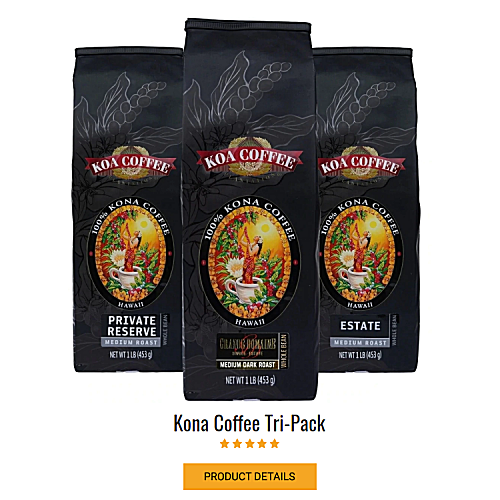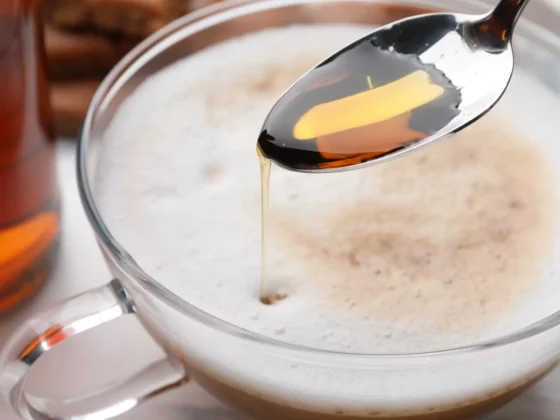In the global community of coffee connoisseurs, the quest for the ideal cup frequently entails striking a balance between bitter and sweet. While sugar has been the traditional go-to for softening the harsher notes of coffee, a growing health-conscious audience is shifting towards more natural and healthier alternatives. This guide explores the diverse ways of how to sweeten coffee without sugar, offering insights into natural substitutes that can enhance the flavor of your coffee while aligning with healthier lifestyle choices. Whether you’re looking to reduce your sugar intake or simply curious about different flavor profiles, this guide will introduce you to a range of options, each bringing its unique characteristics and benefits to your daily coffee ritual.
Natural Sweeteners
In the quest for healthier alternatives to refined sugar, natural sweeteners have become a popular choice. These sweeteners not only provide a unique taste but also come with their own set of benefits. They are particularly useful for those wondering how to make coffee sweet without sugar, offering a delightful twist to your regular cup.
Honey: Nature’s Golden Sweetener
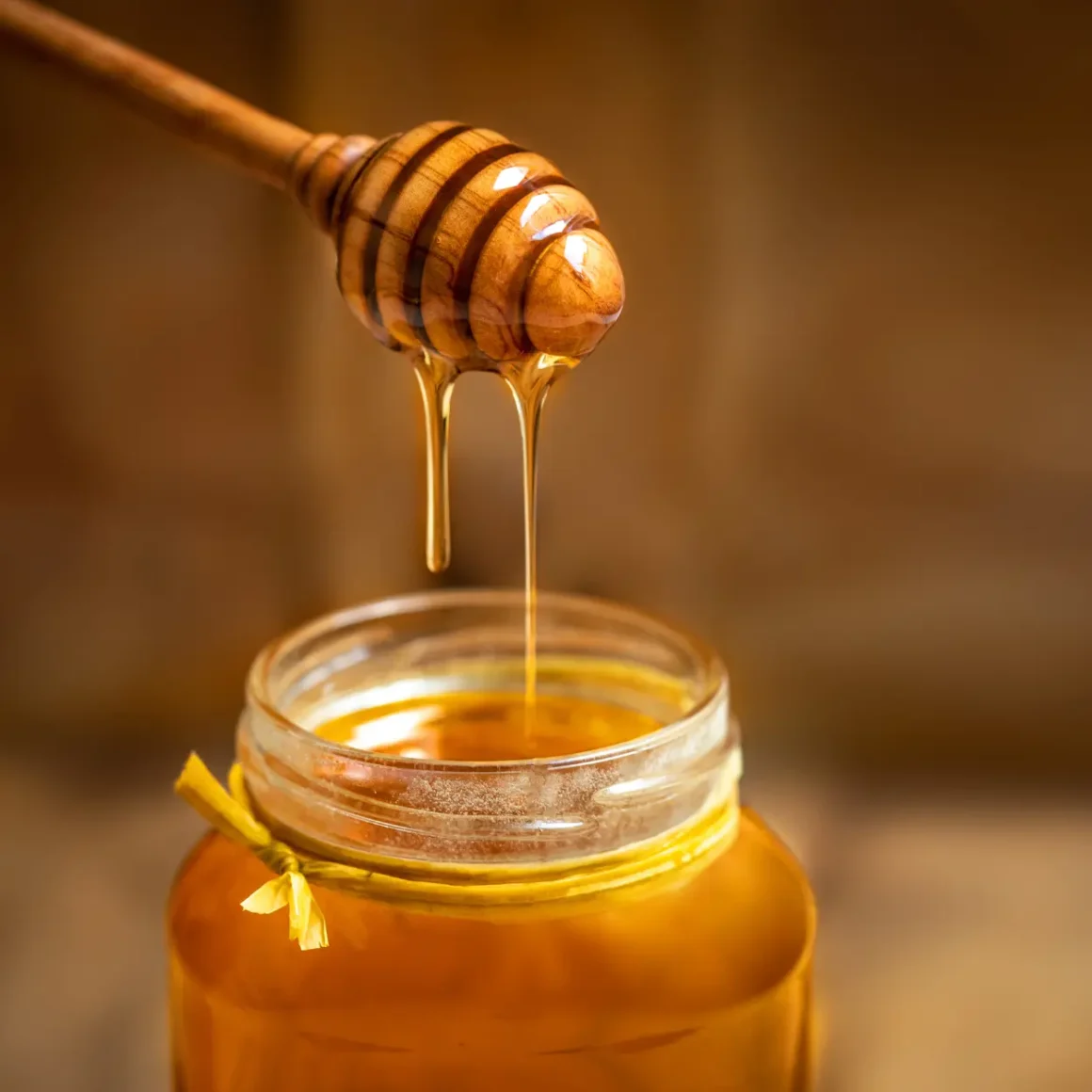
Honey, often regarded as nature’s golden sweetener, is a remarkable product of bees.
- Origin and Production: Honey is a natural sweetener produced by bees. It’s made when bees collect nectar from flowers and then transform it through a process of regurgitation and evaporation inside the beehive.
- Health Benefits: Honey is more than just a sweetener; it’s known for its antioxidants, trace enzymes, amino acids, vitamins, and minerals. This composition makes it not just a sugar substitute but a healthy addition to your diet. (1)
- Usage Tips: Honey has a distinct flavor, which varies based on the types of flowers used by the bees. It’s an excellent sweetener for coffee, especially for those who enjoy a hint of floral undertone. Remember, honey is sweeter than sugar, so you might need less than you usually use.
Maple Syrup: A Rich Alternative
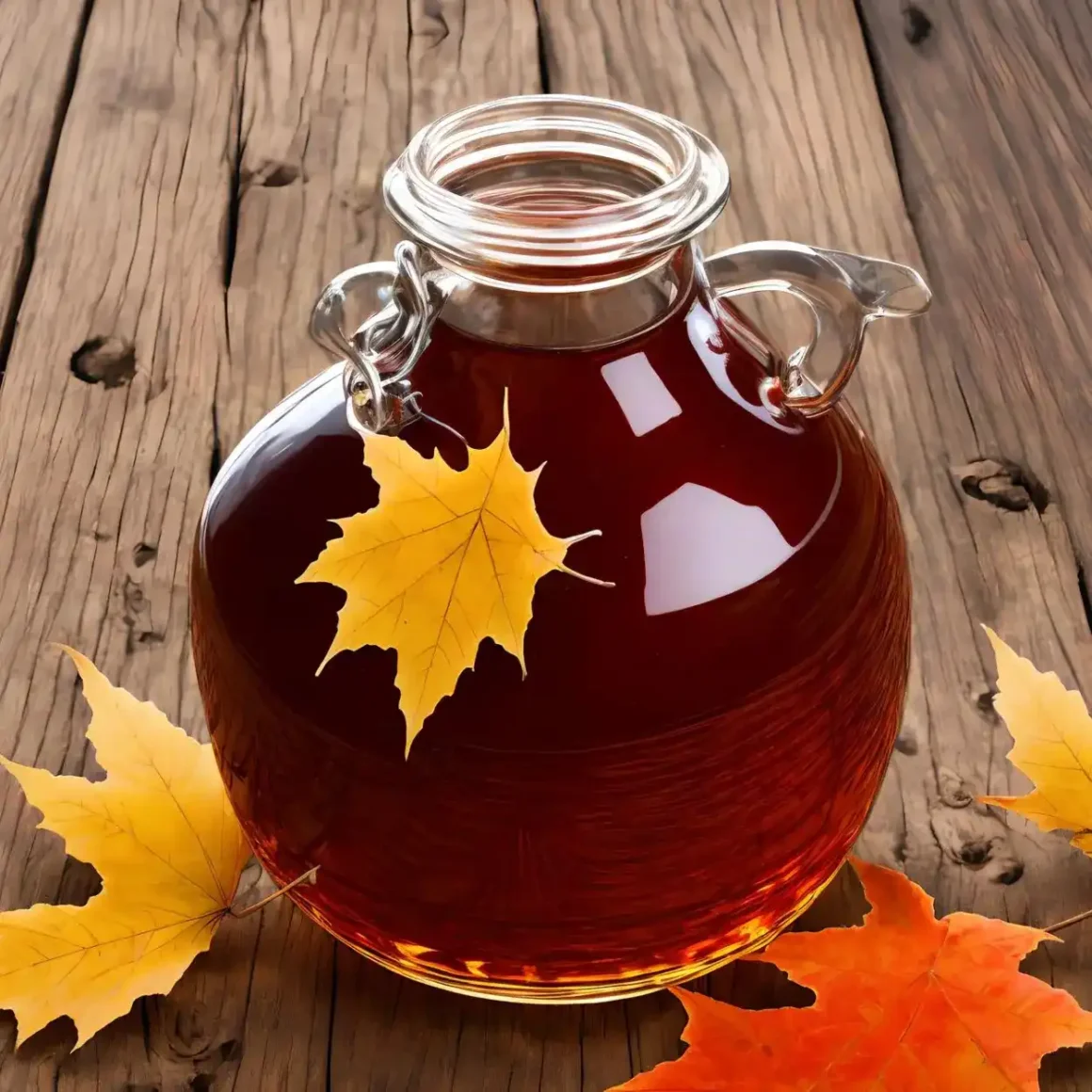
Maple syrup stands out as a rich and flavorful alternative to conventional sweeteners.
- Production Process: Maple syrup is derived from the sap of maple trees, predominantly found in North America. The sap is collected and then boiled down to produce syrup, a process that gives it its characteristic rich, woody flavor. (2)
- Nutritional Aspect: While maple syrup does contain higher levels of sugar, it also offers minerals like calcium, potassium, iron, zinc, and manganese. These minerals add a nutritional punch to your sweetening experience.
- Application in Beverages: When added to a cup of joe, maple syrup imparts a unique, caramel-like sweetness. Its rich flavor complements the robustness of coffee, making it a favored choice for those looking to diversify their coffee experience.
Agave Nectar: A Low-Glycemic Choice

Agave nectar is celebrated for its low glycemic index, making it a favored choice among health-conscious sweetener users.
- Source and Composition: Agave nectar is a sweetener produced from the agave plant, primarily found in Mexico. The nectar is known for its high fructose content, which is why it has a lower glycemic index compared to other sweeteners. (3)
- Health Considerations: Due to its low glycemic index, agave nectar is often recommended for those monitoring their blood sugar levels. However, it’s high in fructose, which should be consumed in moderation.
- Ideal for Coffee: Agave nectar is a versatile sweetener for coffee, especially for those who prefer a less intense sweetness. It blends well without overpowering the coffee’s natural flavors.
In summary, when looking for ways to sweeten your coffee without using sugar, natural sweeteners like honey, maple syrup, and agave nectar are not only flavorful alternatives but also bring their own health benefits. Each has its unique taste and nutritional profile, allowing you to experiment and find the perfect match for your cup of joe.
Spice It Up
Introducing spices into your daily diet can transform mundane meals into delightful culinary experiences. This is particularly true for enhancing the flavors of beverages like coffee. Spices add a new dimension of taste and aroma, making each cup a unique experience. For those seeking the best coffee experience, integrating spices such as cinnamon, nutmeg, and cardamom can elevate a simple cup of coffee into something extraordinary.
Cinnamon: Warm and Sweet
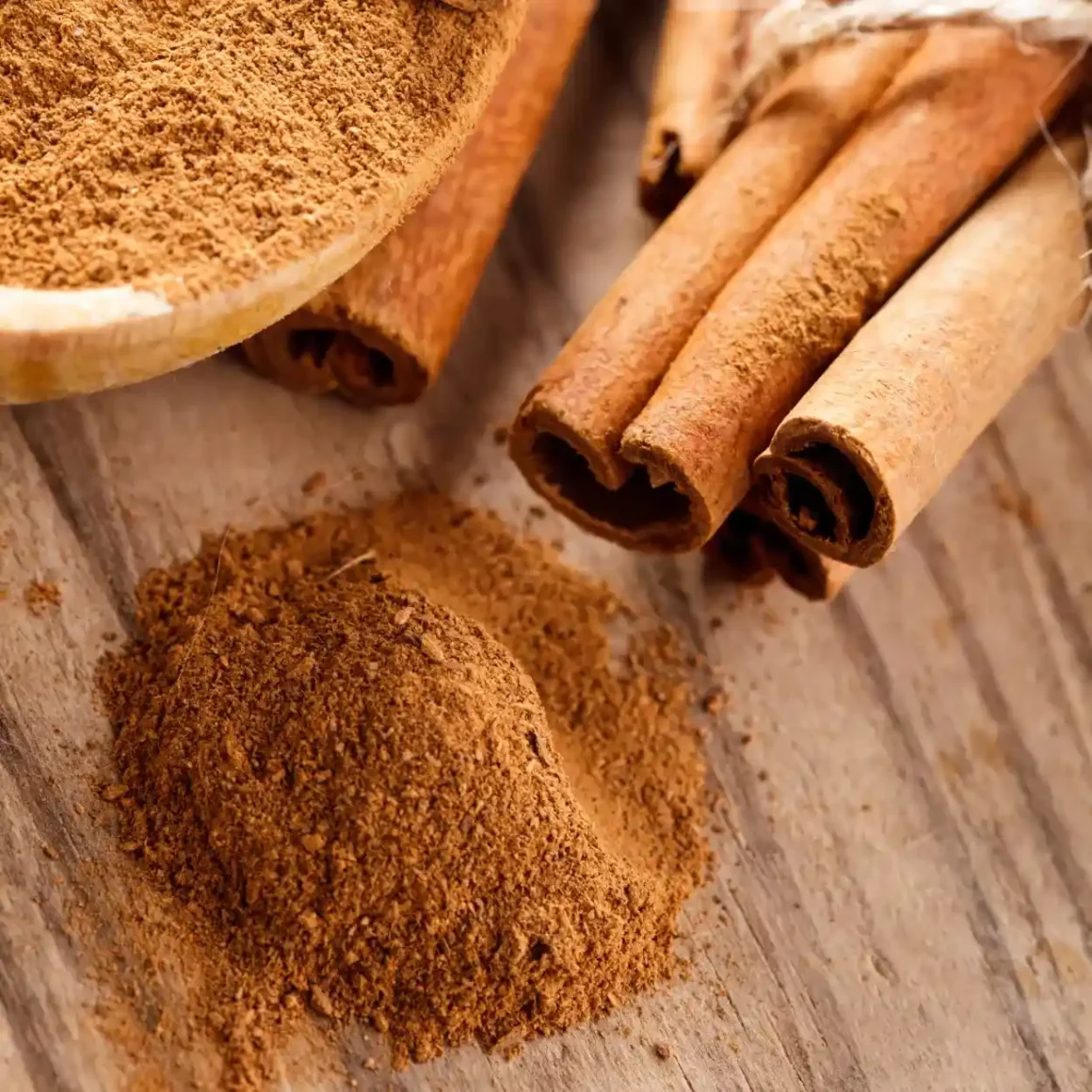
Cinnamon is a versatile spice known for its warm and sweet characteristics.
- Origin and Uses: Originating from the bark of cinnamon trees, this spice is used worldwide for its distinctive flavor and aroma. It’s commonly found in both stick and powdered forms.
- Health Benefits: Cinnamon is not just about flavor; it boasts health benefits like anti-inflammatory properties and blood sugar regulation.
- Enhancing Coffee: A sprinkle of cinnamon in your coffee can introduce a sweet, woody flavor, making it a delightful addition to your morning routine. It pairs exceptionally well with milk-based coffees, adding a touch of warmth and sweetness without the need for sugar.
Nutmeg: Earthy Sweetness
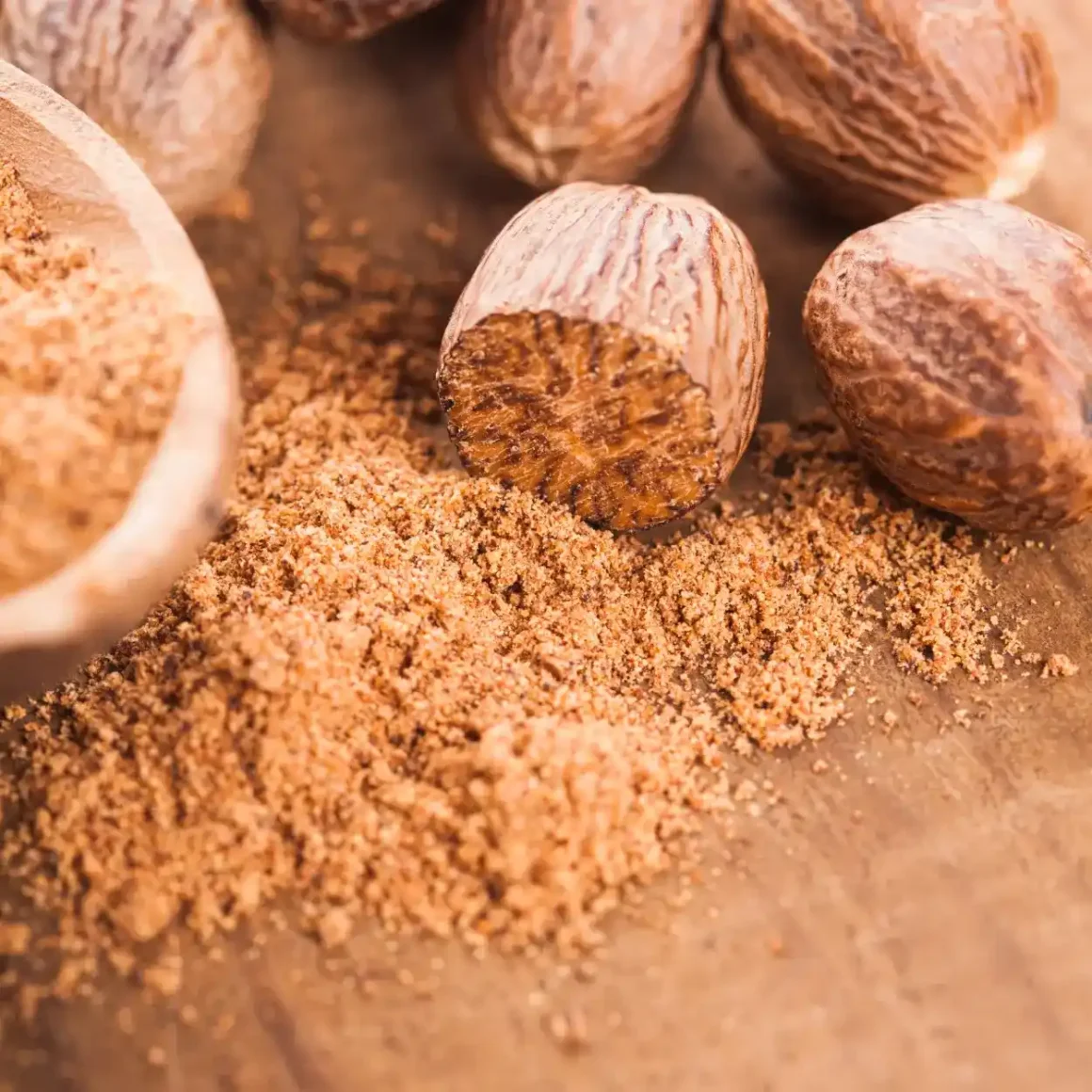
Nutmeg, with its earthy sweetness, is a spice that can infuse a unique flavor into beverages.
- Background: Derived from the seeds of the nutmeg tree, this spice is commonly used in ground form. It is a popular ingredient in various cuisines, known for its warm, slightly sweet taste.
- Nutritional Value: Nutmeg is more than just a flavor enhancer. It contains compounds that offer digestive and brain health benefits.
- Coffee Pairing: Adding a dash of nutmeg to a cup of joe can introduce an intriguing depth of flavor. Its subtle sweetness and spicy undertones complement the bitterness of coffee, creating a harmonious balance.
Cardamom: Exotic Flavor Boost
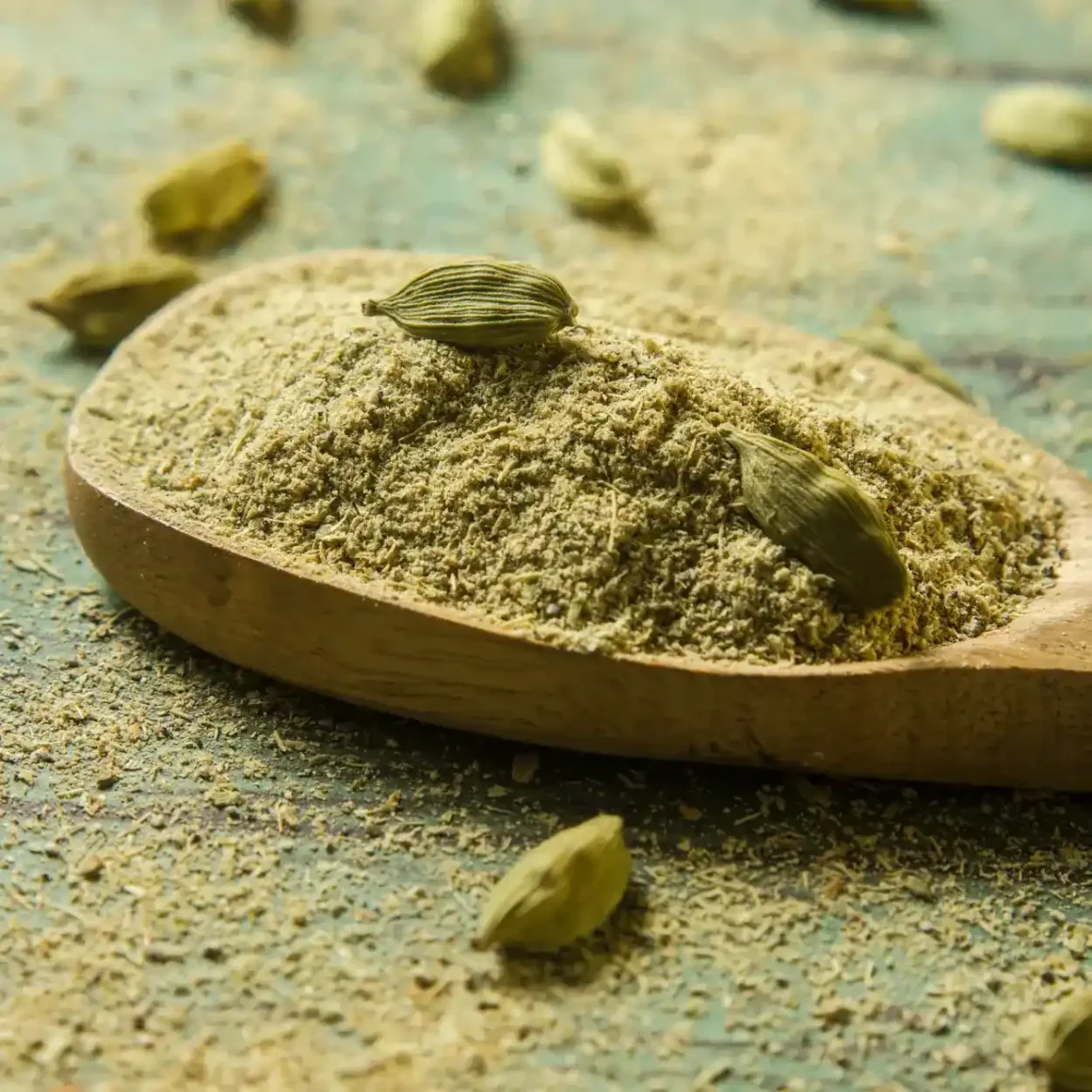
Cardamom, known for its exotic flavor boost, is a prized spice in many cultures.
- Origin and Characteristics: This spice comes from the seeds of various plants in the ginger family. It has a complex flavor profile, combining a mix of sweet, spicy, and citrusy notes.
- Health Aspects: Cardamom is not only flavorful but also has health-promoting properties, including aiding in digestion and having antioxidant effects. (4)
- Application in Coffee: Incorporating cardamom into coffee can transform the beverage into an aromatic and flavorful experience. Its unique taste complements the robust nature of coffee, offering an exotic twist to your daily cup.
Incorporating spices like cinnamon, nutmeg, and cardamom into your beverage routine can significantly enhance the flavor and health benefits of your beverage. Each spice offers a unique taste and aroma, turning an ordinary cup of joe into an extraordinary experience. Whether you’re looking to spice up your morning routine or impress guests with your barista skills, these spices are your go-to choices for an upgraded coffee experience.
Creamy Indulgence
In the quest to find the best milk for frothing, especially for enhancing the best coffee experiences, plant-based alternatives have gained popularity. Not only do they offer unique flavors, but they also cater to a variety of dietary preferences. Among these alternatives, coconut milk, almond milk, and oat milk stand out for their distinctive qualities and frothing capabilities, with each offering a different dimension to your cup of joe.
Coconut Milk: Tropical Elegance
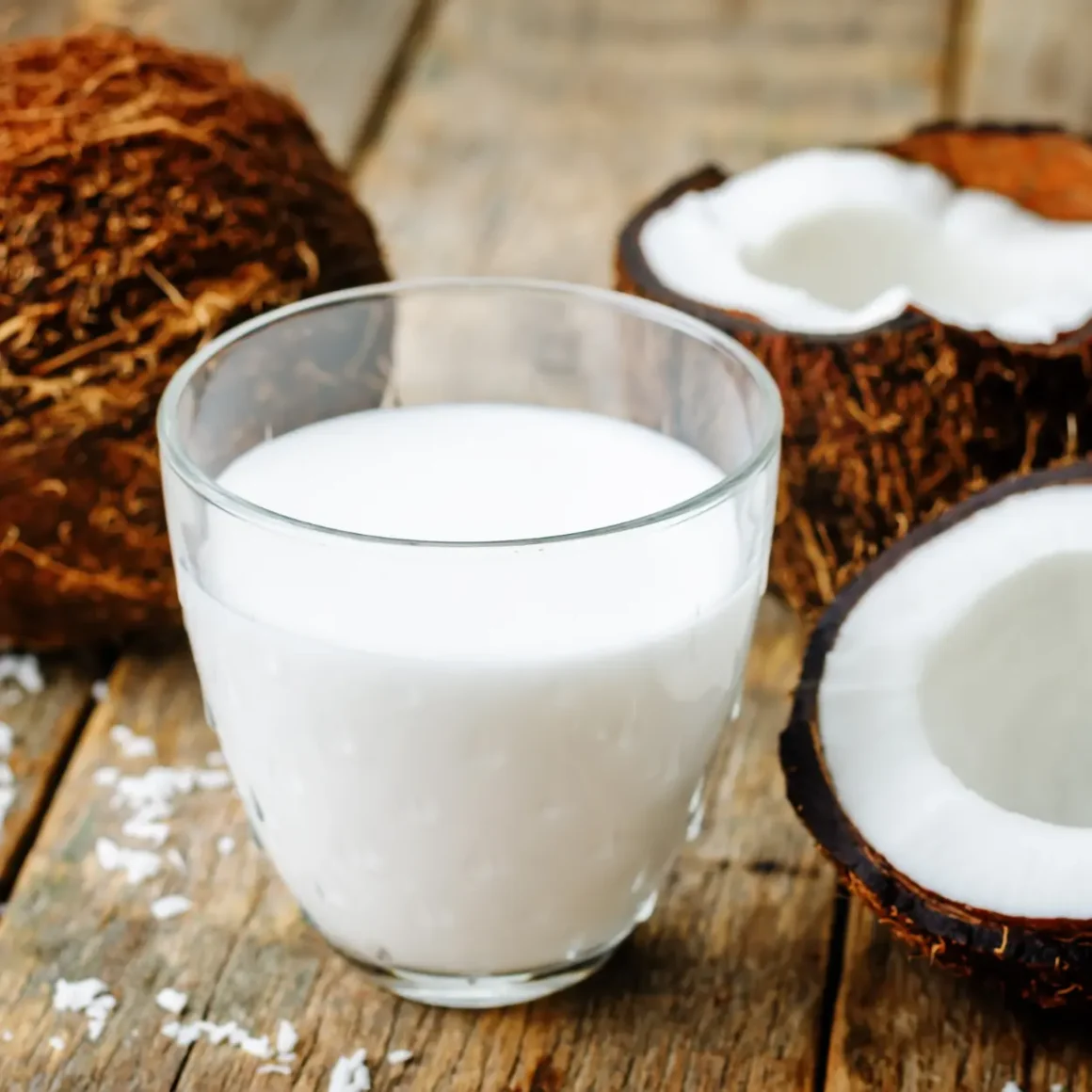
Coconut milk adds a touch of tropical elegance to your beverage, making it a favorite for those who enjoy a hint of exotic flavor.
- Source and Texture: Extracted from the flesh of coconuts, this milk is known for its rich, creamy texture and sweet, nutty flavor.
- Health Benefits: It’s a great dairy-free option, rich in vitamins and minerals, and is often favored for its medium-chain triglycerides (MCTs), which are fats known for their health benefits.
- Coffee Pairing: Coconut milk pairs beautifully with coffee, offering a creamy consistency that’s ideal for creating luscious foam. However, its distinct flavor might slightly overshadow the coffee, so it’s best used in beverages where a coconut essence is desired.
Almond Milk: Nutty Delight
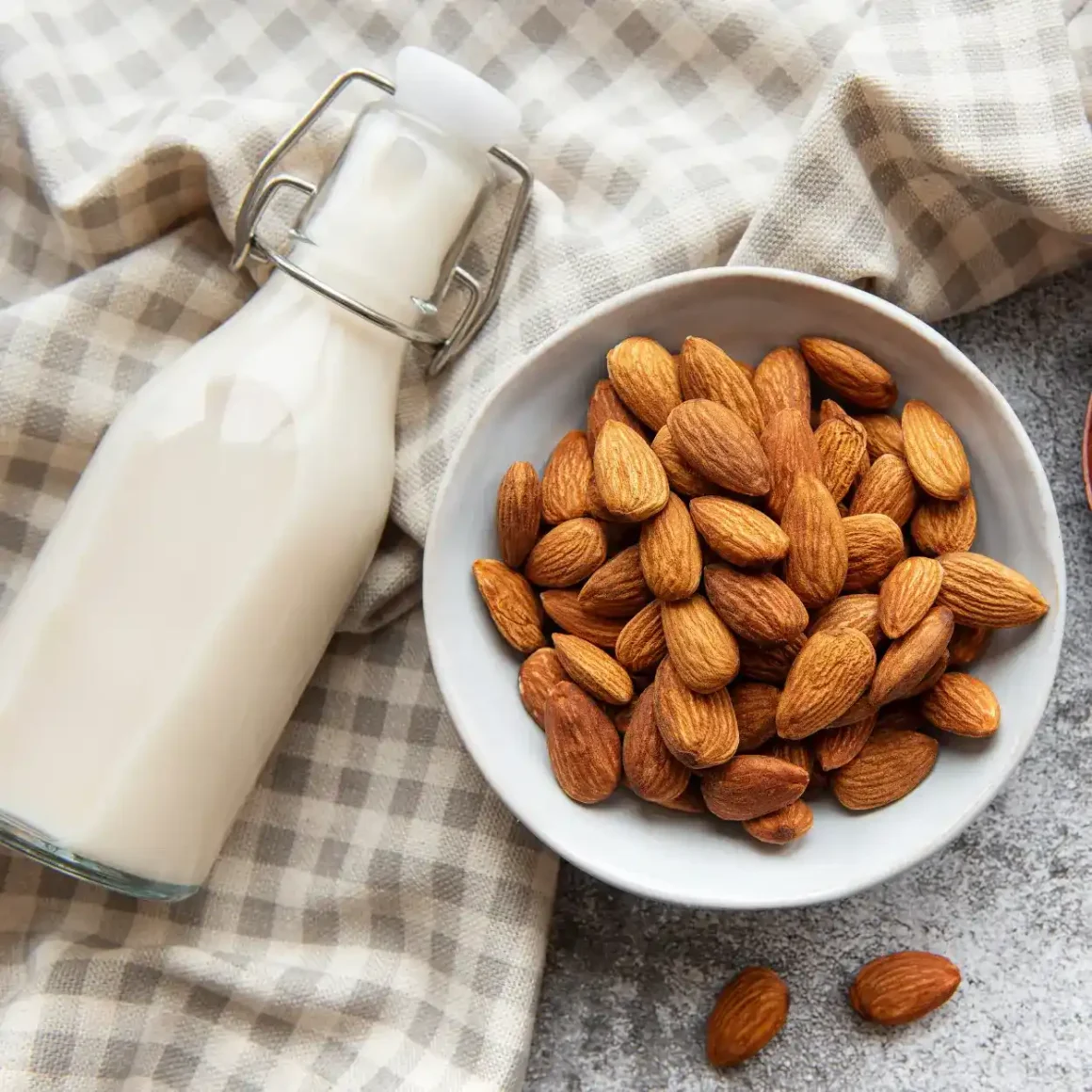
Almond milk is renowned for its nutty delight and is often considered the best almond milk for frothing.
- Production and Features: Made from ground almonds and water, this milk is light in texture with a subtly sweet, nutty taste. It’s a low-calorie option, making it a popular choice for health-conscious consumers.
- Nutritional Profile: Almond milk is not only low in calories but also rich in vitamin E and typically fortified with calcium and vitamin D.
- Use in Coffee: When it comes to coffee, almond milk froths well due to its light and airy texture. It’s ideal for those who prefer a lighter, nutty twist to their coffee without overwhelming its natural flavors.
Oat Milk: Creamy Comfort
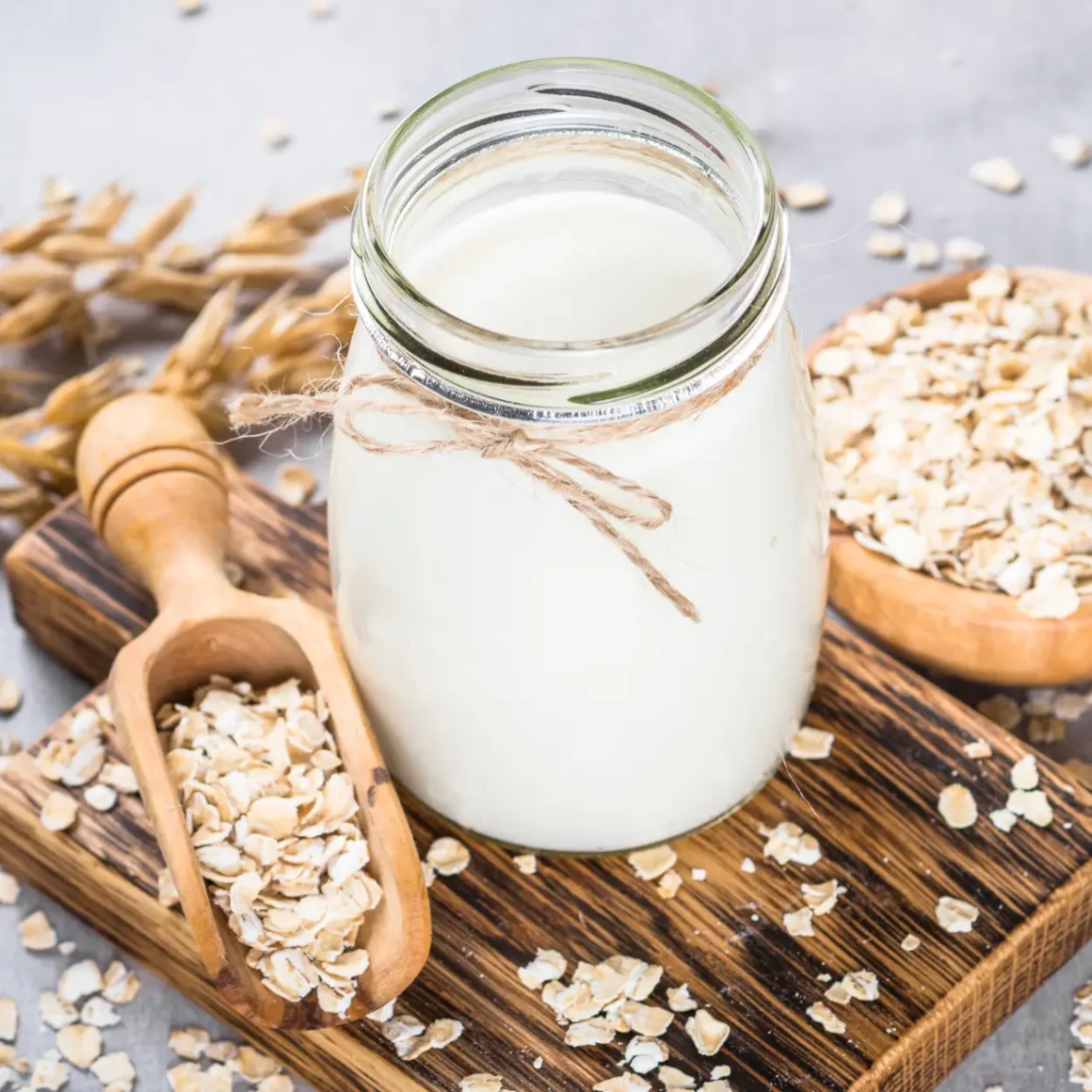
Oat milk offers a creamy comfort that has quickly made it a favorite in coffee circles.
- Composition and Taste: This milk is created by blending oats with water and then straining the mixture. It has a naturally sweet, mild flavor and a thick, creamy consistency.
- Health Aspect: Oat milk is an excellent source of fiber and is often enriched with vitamins and minerals. It’s also a great option for those with dietary restrictions, as it’s naturally free of nuts, lactose, and soy.
- Frothing and Coffee: In terms of frothing, oat milk is a standout, creating a smooth, velvety foam that holds up well in coffee. Its creamy texture enhances the body of the coffee, making it a top choice for lattes and cappuccinos.
Incorporating these plant-based milk alternatives into your coffee can transform your daily brew into a creamy indulgence. Each type of milk offers unique flavors and textures, enhancing the overall coffee experience. Whether you’re looking for a tropical twist, a nutty note, or a creamy caress, coconut milk, almond milk, and oat milk are excellent choices to explore.
The Art of Flavor Infusion
Flavor infusion is a culinary art that involves introducing various elements to enhance and complement the existing flavors in food and beverages. This technique is particularly effective in transforming the taste profile of a simple cup of coffee. By infusing coffee with additives like vanilla extract, orange zest, or lavender, one can elevate the experience of enjoying coffee to new heights.
Vanilla Extract: Classic Elegance
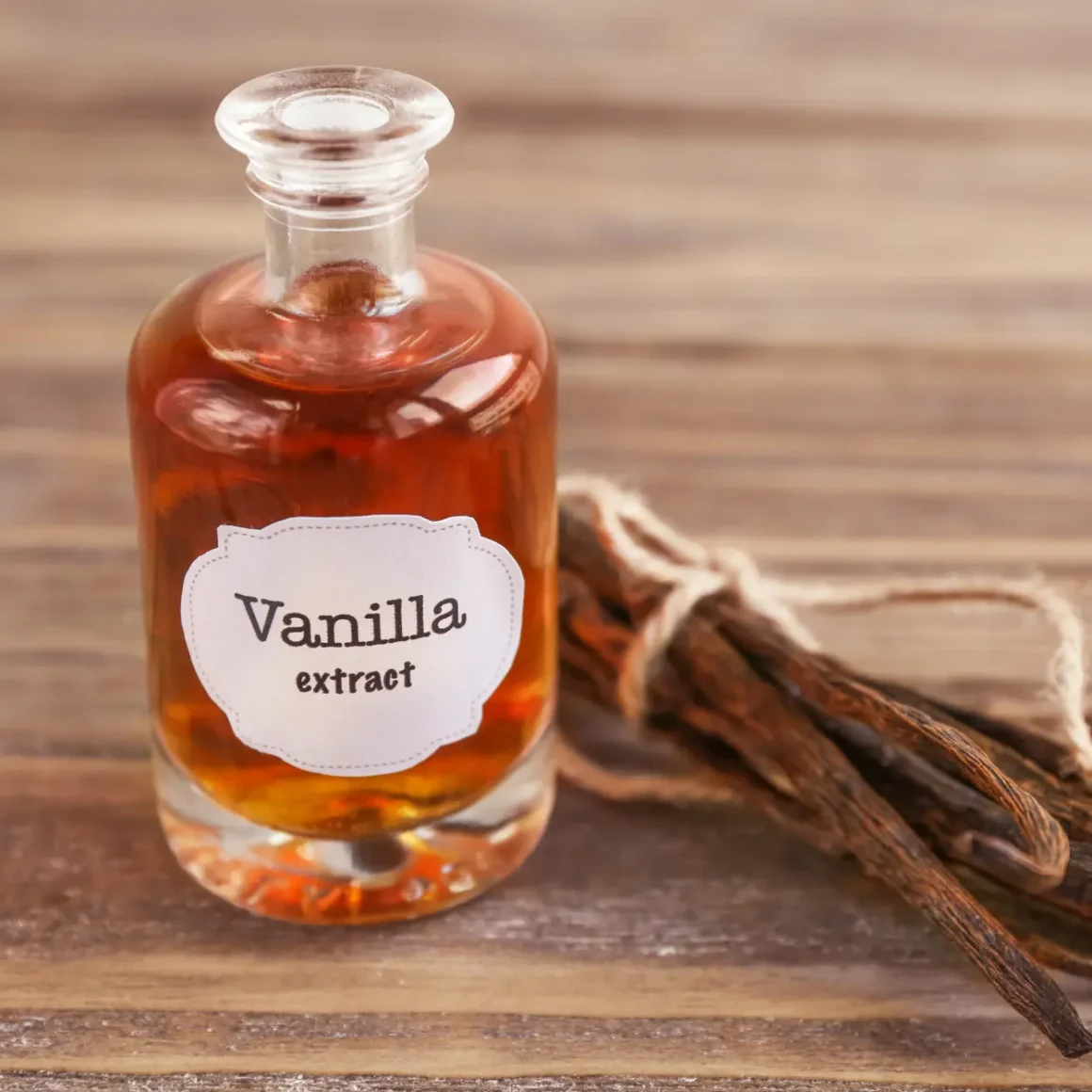
The addition of vanilla extract brings a classic elegance to coffee, harmoniously blending with the coffee’s inherent flavors.
- Essence and Origin: Derived from the pods of the vanilla orchid, vanilla extract is a solution made by soaking the pods in alcohol and water. It’s renowned for its sweet, creamy, and mellow flavor.
- Health Benefits: Vanilla extract contains antioxidants and is known for its calming properties, which can help reduce anxiety and uplift mood.
- Combining with Coffee: When paired with coffee, vanilla extract softens the beverage’s bitterness, adding a layer of sweet sophistication. The aromatic profile of coffee and vanilla complement each other, making vanilla-infused coffee a luxurious and comforting choice.
Orange Zest: Citrusy Zing

Orange zest adds a refreshing citrusy zing to beverages, offering a unique twist to traditional flavors.
- Extraction and Characteristics: Zest is obtained by grating the outer peel of oranges. This part of the fruit is packed with essential oils, responsible for its vibrant and tangy flavor.
- Nutritional Value: Rich in vitamins, particularly vitamin C, and antioxidants, orange zest not only enhances flavor but also contributes to overall health.
- Use in Coffee: The addition of orange zest to coffee creates a delightful contrast. The zesty, citrus notes cut through the richness of coffee, offering a refreshing and invigorating experience. It’s a perfect choice for those looking to add a bright and aromatic dimension to their coffee.
Lavender: Floral Fragrance
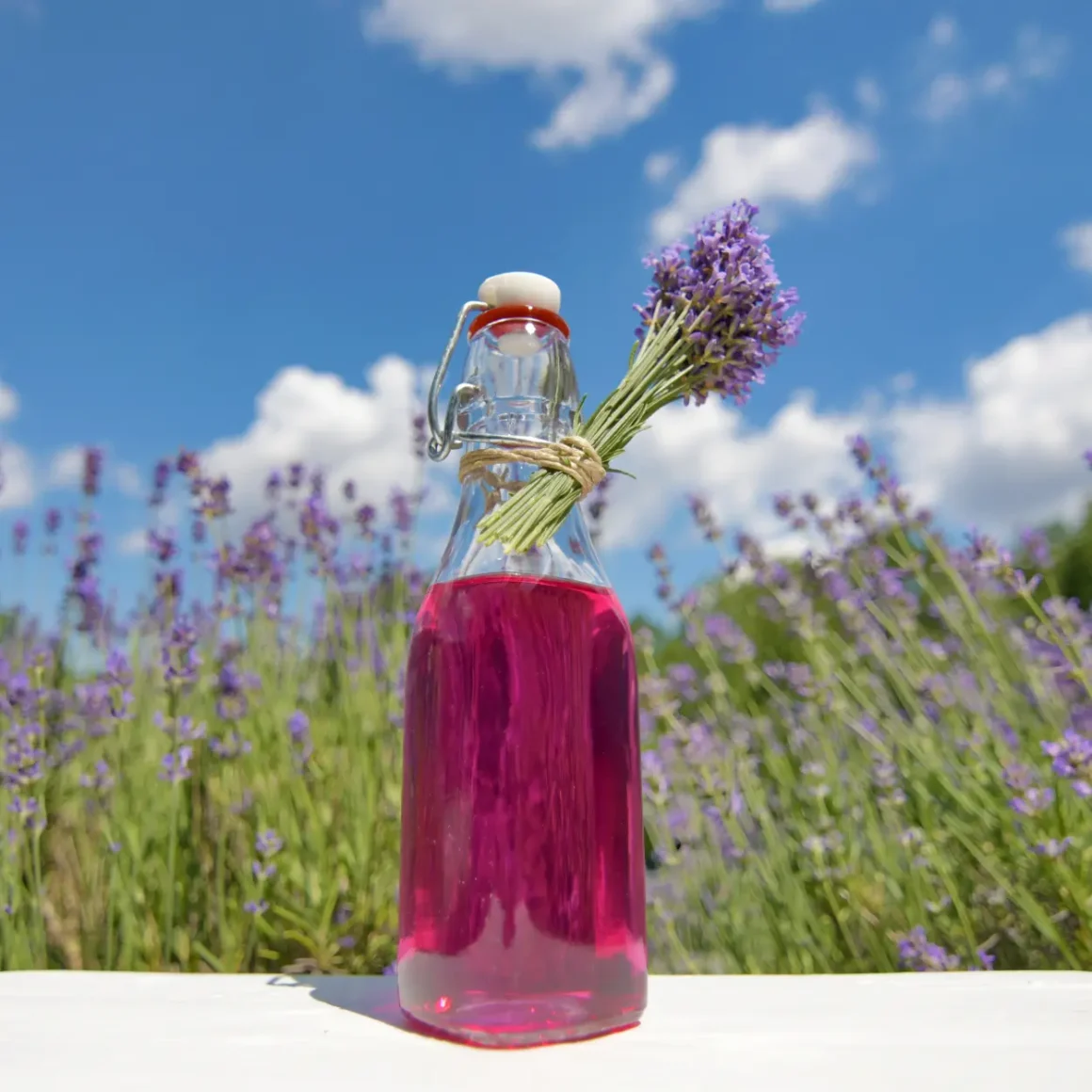
Lavender is celebrated for its floral fragrance and has been used in culinary applications to impart a delicate, floral note.
- Source and Flavor Profile: Lavender is a herb known for its purple flowers and soothing fragrance. In culinary use, it imparts a slightly sweet, floral, and herbaceous flavor.
- Health Benefits: Known for its calming effects, lavender can aid in relaxation and stress relief. It’s also used for its digestive benefits.
- Pairing with Coffee: Incorporating lavender into coffee introduces a subtle floral aroma and taste. This unique combination can transform a regular cup of coffee into a serene, sensory experience. It’s especially appealing for those who enjoy exploring unconventional flavor profiles in their coffee.
The art of flavor infusion with additives like vanilla extract, orange zest, and lavender offers a creative way to enhance the sensory experience of drinking coffee. These infusions not only enrich the flavor and aroma but also bring additional health benefits, making each cup a more enjoyable and wholesome experience.
Special Coffee Sweeteners
In the ongoing quest for healthier alternatives to traditional sugar, many coffee enthusiasts are exploring unique ways on how to sweeten coffee without sugar. This has led to the rise in popularity of natural and low-calorie sweeteners, each offering a distinct flavor profile and health benefits. Among these alternatives, date paste, stevia, and monk fruit extract are particularly noteworthy for their ability to sweeten coffee without the usual drawbacks of sugar.
Date Paste: Natural Sweetness
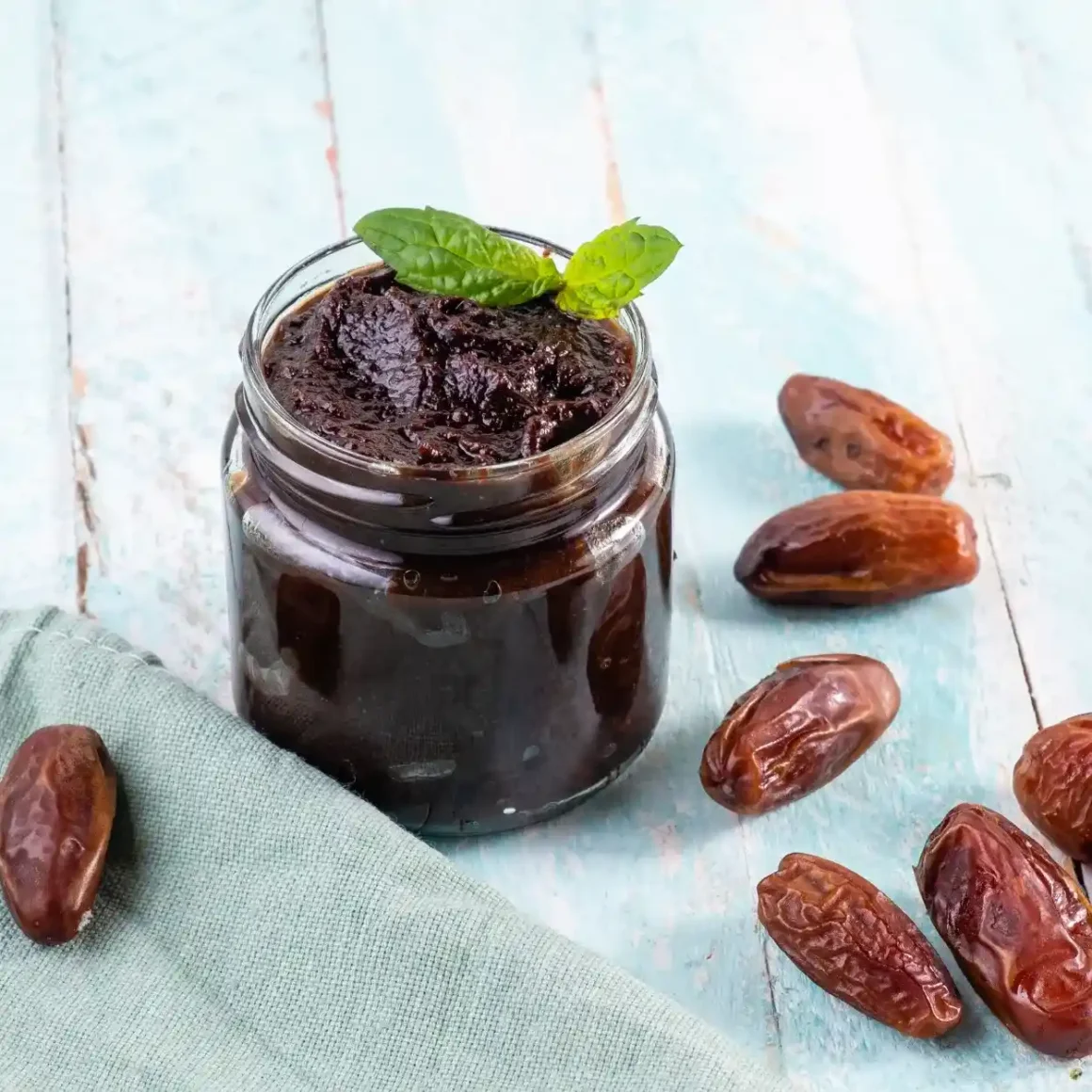
Date paste is a natural sweetener that brings a unique sweetness to coffee, derived entirely from fruit.
- Source and Preparation: Made from pureed dates, this paste retains all the nutritional value of the fruit. Dates are naturally rich in sugars, but they also offer fiber, vitamins, and minerals.
- Health Benefits: Apart from its sweetening ability, date paste is beneficial due to its high fiber content, which aids in digestion, and its range of essential nutrients.
- Application in Coffee: When added to coffee, date paste imparts a subtle, caramel-like sweetness. It’s especially suitable for those who prefer their coffee with a mild, fruity undertone. The paste’s thick consistency means it blends well in both hot and cold coffee drinks.
Stevia: Zero-Calorie Option
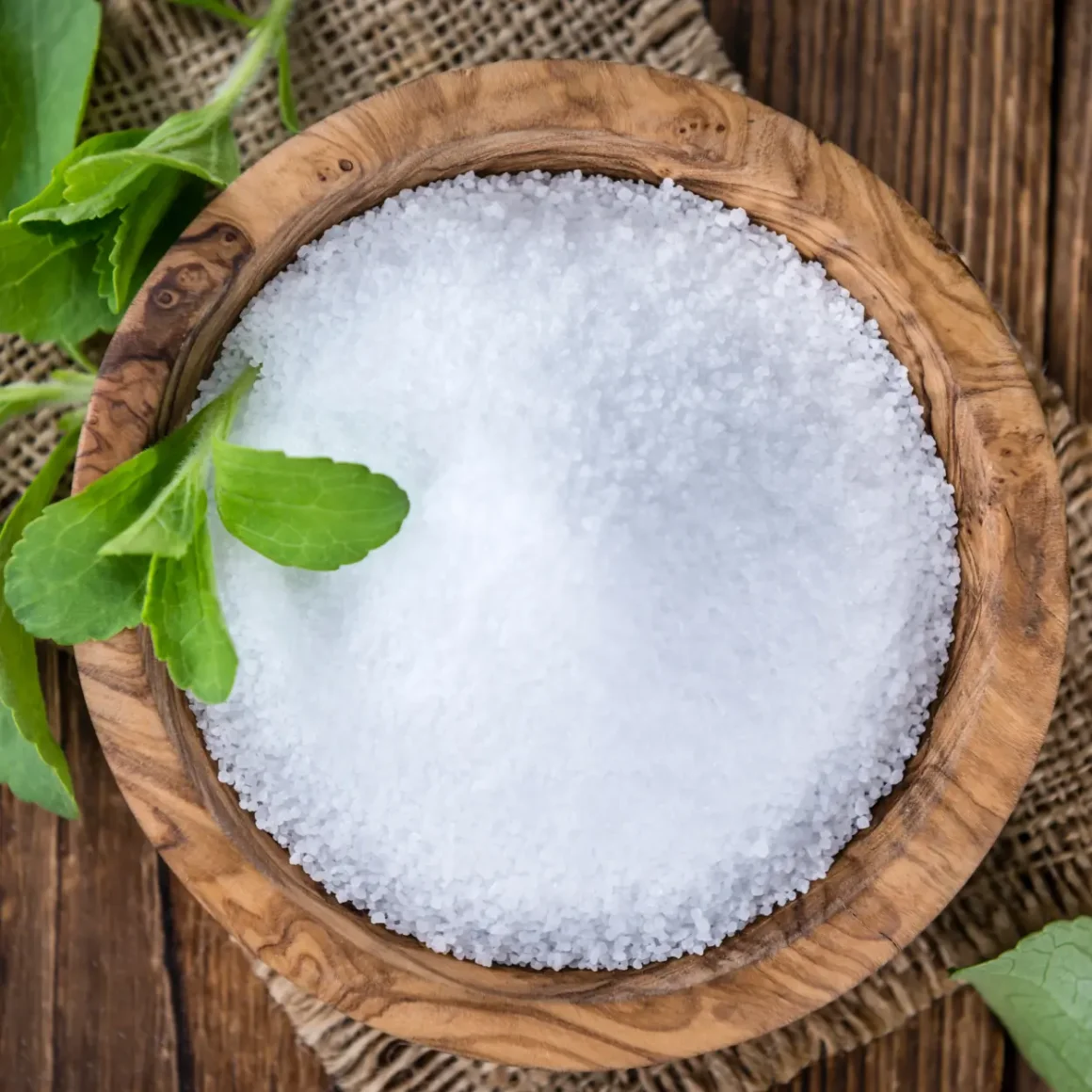
Stevia is widely recognized as a zero-calorie sweetener, making it a favorite for health-conscious coffee drinkers.
- Origin and Features: Extracted from the leaves of the Stevia rebaudiana plant, stevia is a natural sweetener with no calories and no carbohydrates.
- Health Aspects: It’s an excellent choice for those monitoring their calorie intake or managing diabetes, as it doesn’t spike blood sugar levels.
- Use in Coffee: Stevia is much sweeter than sugar, so only a small amount is needed to achieve the desired sweetness in coffee. It offers a clean, slightly herbal sweetness, although some people may notice a mild aftertaste.
Monk Fruit Extract: The Sugar-Free Sweetener
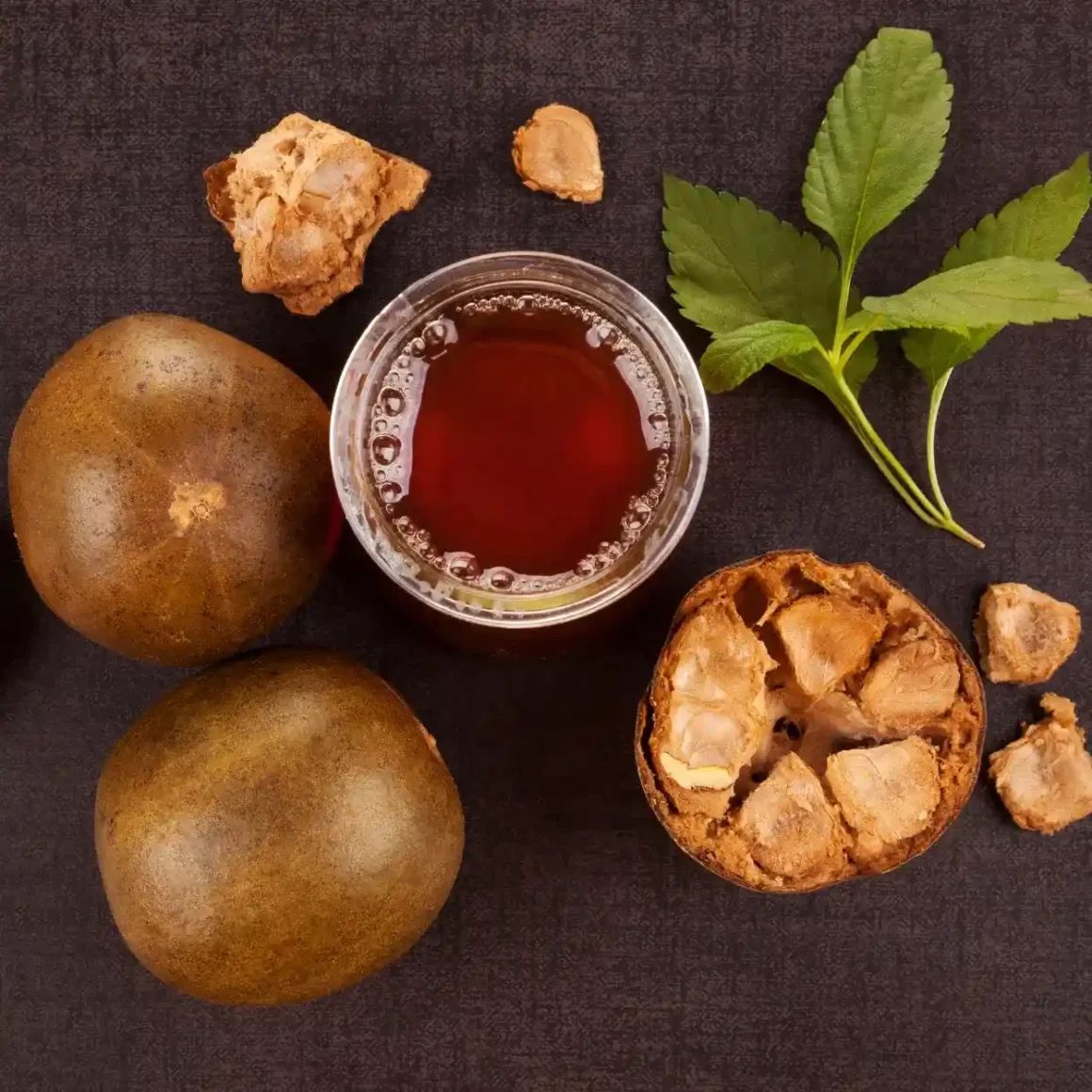
Monk fruit extract is gaining traction as a popular sugar-free sweetener, particularly for those looking to reduce their sugar intake without sacrificing taste.
- Background and Sweetness: Derived from the monk fruit, also known as Luo Han Guo, this extract is a natural sweetener that contains zero calories. It’s significantly sweeter than sugar, owing to the unique compounds called mogrosides.
- Health Advantages: Monk fruit extract is safe for diabetics and does not affect blood sugar levels. Additionally, it does not have the same aftertaste as some other sugar alternatives.
- In Coffee: The extract dissolves easily in coffee, providing a clean and sweet flavor without any calories. It’s ideal for those who want to enjoy a sweetened coffee experience without the guilt associated with sugar.
Exploring these special coffee sweeteners offers an excellent way to enjoy your favorite beverage without the health concerns related to traditional sugar. Whether you prefer the natural fruitiness of date paste, the zero-calorie sweetness of stevia, or the sugar-free profile of monk fruit extract, each sweetener presents a unique way to enrich your coffee experience healthily and deliciously.
Artificial Sugar Sweeteners
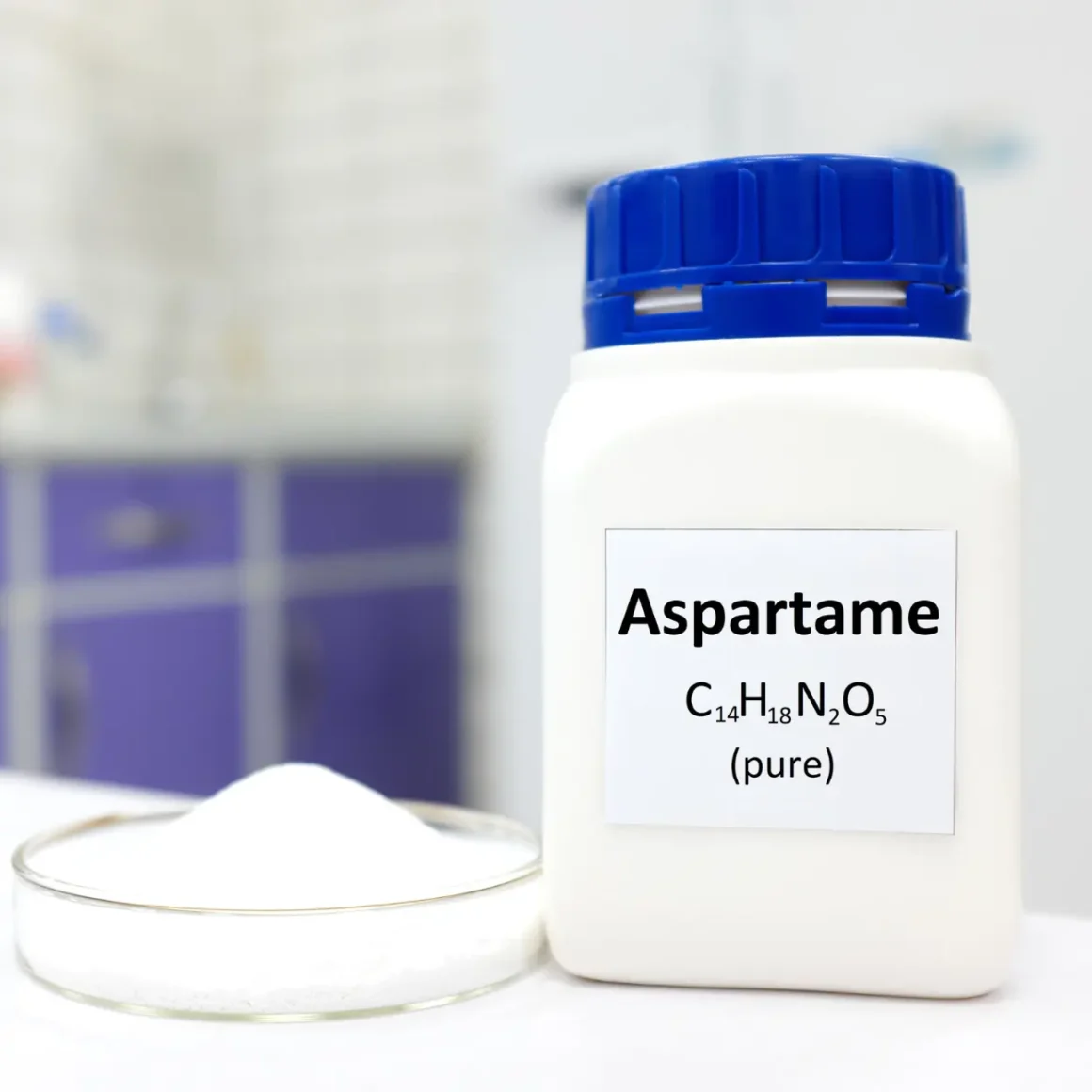
Artificial sweeteners are a popular choice for calorie-conscious individuals and those managing conditions like diabetes, as they offer sweetness without the associated calories. These synthetically produced sweeteners provide intense sweetness without adding extra calories, making them a key component of modern nutritional choices:
- Aspartame: One of the most well-known artificial sweeteners, aspartame is about 200 times sweeter than sugar. It’s commonly found in diet sodas, sugar-free gum, and low-calorie desserts. Despite its widespread use, aspartame is not heat-stable, hence it’s not ideal for cooking or baking.
- Sucralose: Another popular sweetener, sucralose is about 600 times sweeter than sugar and is used in a wide array of products, including beverages, baked goods, and canned fruits. Unlike aspartame, sucralose remains stable under heat, making it a versatile option for various culinary uses.
- Saccharin: Known for being one of the oldest artificial sweeteners, saccharin is around 300 to 400 times sweeter than sugar. It’s commonly used in soft drinks, sweetener packets, and in baking. Saccharin has a longer history of use and was one of the first substitutes available on the market.
- Acesulfame Potassium (Ace-K): This sweetener is about 200 times sweeter than sugar and is often found in baked goods, chewing gum, and gelatin desserts. It’s known for its excellent stability under heat.
When choosing an artificial sweetener, it’s essential to consider both the desired sweetness level and how the sweetener will be used. For instance, some sweeteners may leave an aftertaste or may not be suitable for high-heat cooking. It’s also important to be mindful of any health concerns or dietary restrictions, as some people may have sensitivities to certain artificial sweeteners.
How to Bring out the Natural Sweetness out of your Coffee Beans?
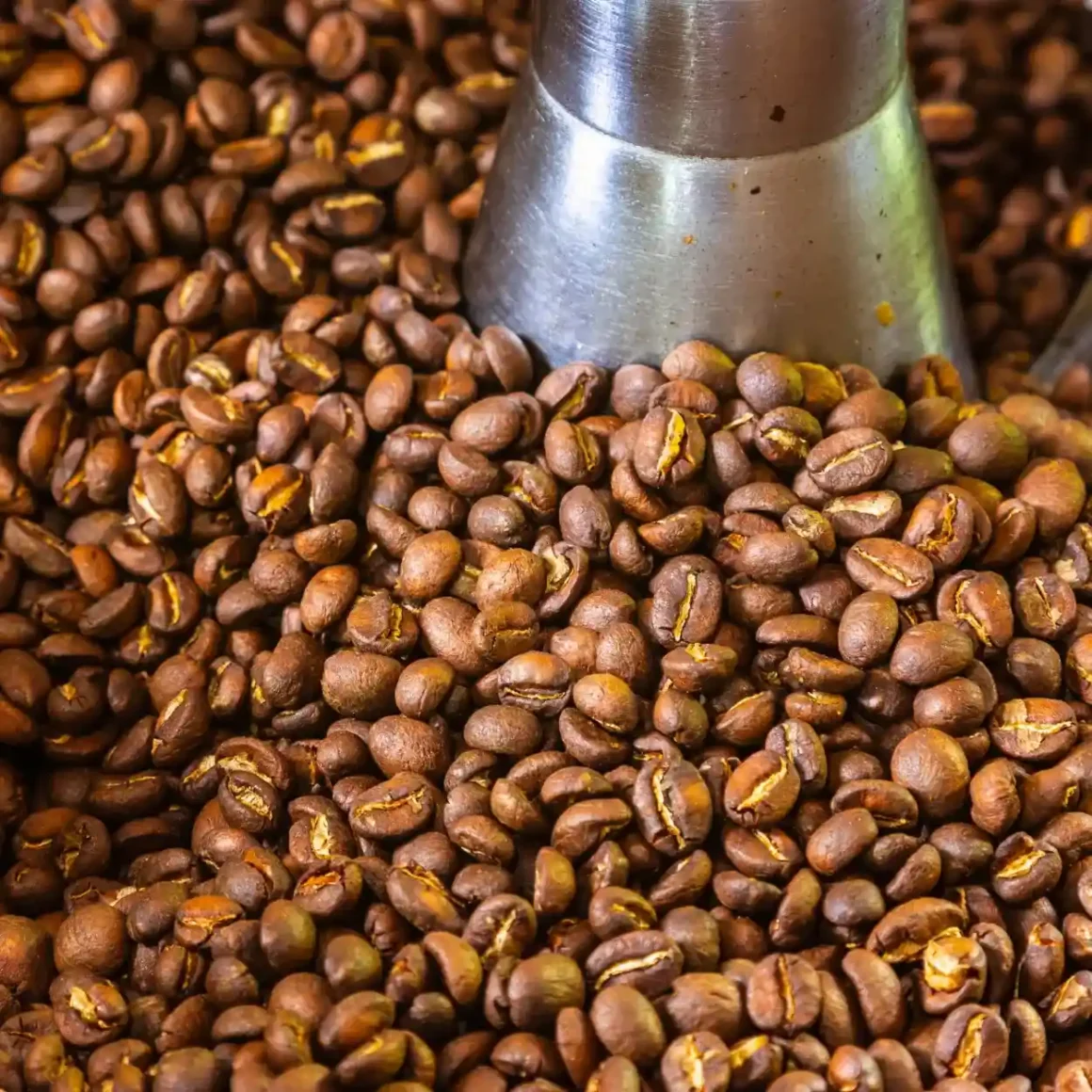
Extracting the natural sweetness from coffee beans is an art that enhances the overall flavor of the coffee. It involves understanding the types of beans, their origins, and the roasting process. This approach is pivotal for those who appreciate the subtle nuances in their coffee’s taste profile without the need for added sweeteners.
Types of Coffee Beans that are Naturally Sweet
Different types of coffee beans inherently possess varying degrees of natural sweetness. This sweetness is influenced by the bean’s origin, the altitude at which it was grown, and the processing method. Here are some key types known for their natural sweetness:
- Arabica Beans: Widely recognized for their superior quality, Arabica beans are known for their natural sweetness and complex flavor profiles. They often exhibit notes of chocolate, fruit, and nuts, which contribute to their sweet character.
- Bourbon and Typica Varieties: These are traditional varieties of Arabica beans. Bourbon beans are known for their deep, sweet flavors, often with hints of fruit and chocolate. Typica beans, on the other hand, are appreciated for their sweet, clean taste with floral and fruity notes.
- Beans from Specific Regions: Coffee beans from certain regions are renowned for their inherent sweetness. For instance, Ethiopian beans often have floral and fruity notes, contributing to a natural sweetness. Similarly, beans from Colombia and Brazil are known for their mild, sweet, and nutty flavors.
- Natural or Dry Processed Beans: The method of processing coffee beans also plays a significant role in their sweetness. Natural or dry-processed beans, where the coffee cherries are dried whole, tend to retain more of their natural sugars and fruity flavors, leading to a sweeter taste in the final cup.
Understanding these aspects of coffee beans can significantly enhance the natural sweetness in your coffee. This approach is especially beneficial for those who prefer their coffee without added sweeteners, relying instead on the intrinsic flavors of the beans to provide a satisfying and naturally sweet taste experience.
Conclusion
In conclusion, understanding how to make coffee sweet without sugar opens up several possibilities for enhancing your coffee experience. Embracing natural alternatives not only caters to health-conscious preferences but also introduces an array of flavors and textures that can elevate a simple cup of coffee into a delightful beverage. From the fruity richness of date paste to the calorie-free sweetness of stevia and monk fruit extract, these alternatives offer a diverse palette for both the adventurous and the health-focused coffee lover. Furthermore, exploring the natural sweetness of different coffee beans and infusion techniques can reveal the inherent qualities of coffee in new and exciting ways.
FAQ
How can I incorporate spices to sweeten my coffee?
Add spices like cinnamon, nutmeg, or cardamom directly to your coffee grounds before brewing for a naturally sweet flavor.
Which non-dairy milk is ideal for a sweeter coffee?
Almond milk and oat milk are ideal non-dairy options for a sweeter coffee, offering nutty and creamy sweetness respectively.
Are there unique flavor infusions that enhance coffee sweetness?
Vanilla extract, orange zest, and lavender are unique flavor infusions that can naturally enhance the sweetness of coffee.
What are some specialized coffee sweeteners for health-conscious individuals?
For health-conscious individuals, stevia, monk fruit extract, and date paste are specialized sweeteners that offer sweetness without added sugar.



